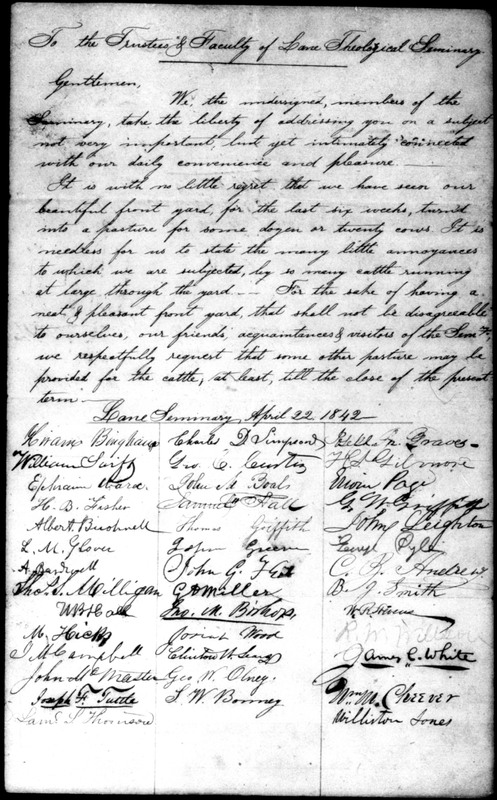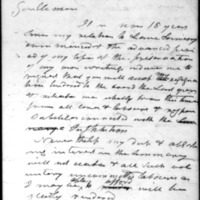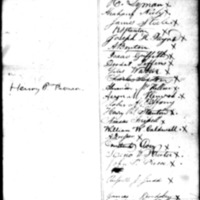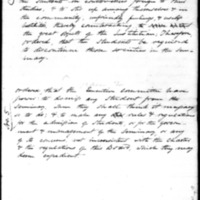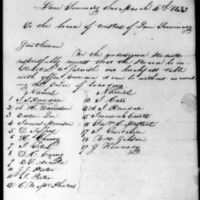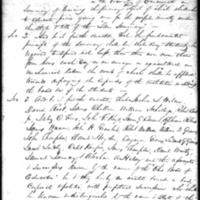Life at Lane Seminary
The home of Lane Theological Seminary was rural Walnut Hill, known as Walnut Hills today. The campus sat atop an area of rolling hills in a park-like setting, two miles from the bustling river town of Cincinnati, Ohio. In 1828, this was considered the gateway to the western frontier. This setting is depicted through the original documents displayed on my website. Campus life was not always a series of contentious debates, but the students did possess strong opinions. Two documents are petitions both for and against the serving of coffee at breakfast. There is also an unexpectedly and beautifully written request to have cows removed from grazing on the campus lawn. The students daily diet is detailed in two original documents which I named “Bill of Fare” and “Change of Diet”. I decided to include these primary sources into my website because they give a more complete picture of everyday life at Lane Seminary and the students who lived there. The students were not solely focused on abolition versus colonization during their time at the seminary. These men had ideas and opinions on how to improve their conditions of life.
One factor that was a part of everyday life at Lane Seminary was the constant struggle to raise financial support. A letter from Andrew Lane, another brother of Ebenezer Lane, describes his financial loans to the seminary and his lack of interest in continuing future payments. Lane is concerned that other donors are not completing their payments. There were professors’ salaries to be paid and campus buildings to be maintained. One letter that describes this need is the letter from Lyman Beecher to John Tappan in 1837. Beecher's lengthy letter to Tappan details Arthur Tappan's financial pledge on the condition that Beecher become the president of the seminary. Now that Beecher has been president for a few years, he believes that his negotiation with Arthur Tappan would provide two-thousand dollars per year for his salary. Beecher describes his need to provide financially for his large family. He spells out in detail how much money was promised to him, and how he desperately needs it to prevent the pressure from crushing him.
The students at Lane Seminary and the actions they took to preserve and improve their conditions of life are not so different from college students today. The Lane students established committees to address the issues on campus, and created societies for special interests. Students today do the same thing. Though the issues they protest are different; colleges don’t have cows on the quad today, all students have used their rights to have their voices heard, whether that be by a protest or a letter to the board of trustees.
